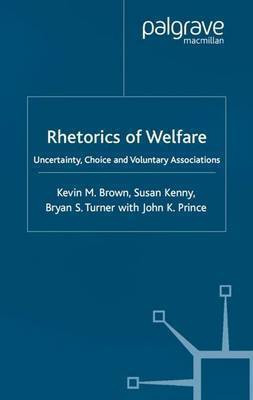Rhetorics of Welfare(English, Electronic book text, Professor Brown Kevin M.)
Quick Overview
Product Price Comparison
In the context of profound social and political change, social scientists have been concerned to understand the transformations of the welfare state and voluntary associations in industrial societies, and how these changes relate to more general political questions about participation and active citizenship. Through a national empirical study of this 'third sector' in Australia, the authors examine the impact of neo-liberal economic policies on the functions, nature and prospects of the non-profit third sector. Their study shows that there are very different responses to change within the non-profit sector, that neo-liberalism has had major consequences for funding, management style and organizational responses, and that the sector is remarkably robust. Their enquiry has general relevance to debates about welfare and citizenship, and is a major contribution to theories of democracy, citizenship and social capital. The research shows that, despite significant disruptions to the sector, voluntary associations can provide community involvement, client focus and avenues for democratic involvements.Where state support has been reduced or withdrawn, community-based voluntary associations can provide relevant welfare services and sustain social capital. There are, however, severe limitations on the universality and breadth of these contributions. This book is a major empirical and theoretical contribution to our understanding of the commercialization and commodification of welfare services in neo-liberal capitalism. It is also a study of the growing tensions between professionalized services in the third sector and associative democracy. The study provides a balanced view of the major organizational and cultural divisions within the non-profit voluntary welfare sector in the context of aspirations for the growth of an associative democracy.


